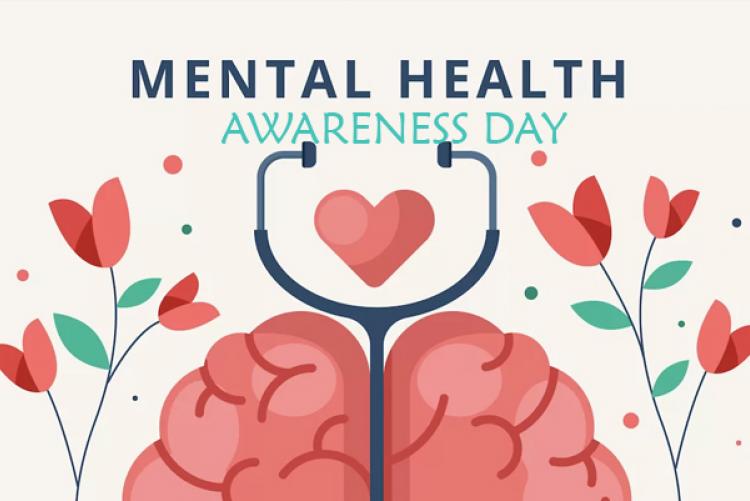The University of Nairobi community comprising of students and staff was last evening celebrating mental health day, a day to raise mental health awareness with a theme : make mental health and mental wellbeing a global priority.
Speaking during the event, Prof. Lukoye Atwoli, said that mental health is real. “Preventing and treating mental health has real economic benefits”, he said. During the COVID19 lockdown, suicide rates increased, substance abuse also increased. “COVID-19 had impact on mental health,” he said.
Even after COVID-19, there were still anxieties among the population. “Such anxieties include fear of travelling, leaving the house, fear of getting COVID-19 and fear of dying. We also had grief as many people lost relatives and loved ones,” he said.
He pointed out that COVID-19 has effects on nervous system. Proper treatment of mental health or treatment of COVID-19 had better results, he observed.
In his concluding remarks, he pointed out that among those who died of COVID 19, those who had both COVID-19 + mental health sicknesses perished more.
There is light at the end of the tunnel. “Find reasons to be hopeful’, he concluded.
The University of Nairobi Vice Chancellor, Prof. Stephen Kiama, reiterated his reform agenda in the University and more so the need for people reforms. “When people are taken care of, the output is greater,” he said. He noted that the great expectations put on us, bring out the anxiety that later leads to mental health challenges.
Prof. Julius Ogen’go, Associate Vice Chancellor, Academic Affairs, said that over 300 students chased away from University, about 30 of them had mental health issues.
Mr. Brian Ouma, Chief Operating Officer, outlined some of the causes of mental health illness as ; stigma, financial pressure, anxiety, depression, stress. “We need involvement of all people. Mental Health at workplace is on the rise. Among students, mental health affects students retention rate and failures,” he said.
Prof. Walter Jaoko cautioned Kenyans to be careful of the Ebola outbreak from Uganda. “Ebola is a serious disease, fatal in humans. It is spread from wild animals to humans. Averagely, 50% of people infected by Ebola die. It was discovered near River Ebola in DRC Congo. The symptoms include fever, tiredness, sore-throat, bleeding from gums,” he said.
The areas likely to get Ebola include Mombasa, Kisumu and Busia corridors.
Dr. Lucy Muhia, Director, University Health Services, observed that mental health is important at every stage of life, it affects how we think, feel. She pointed out that certain health risky behavior could be associated with mental health. She urged students and staff to come out in large numbers during day and get free breast cancer screening, ultrasound, screening of cardiovascular diseases among other diseases. “Mental health is treatable,” she said. The major challenges faced by health proffessionals include identification of the mental health triggers, creation of awareness of mental health illnesses, stigma.
Dr. Catherine Amalundu, Clinical Psychologist at the University Health Services, reasoned that with the emergence of technologies such as Rada App, ehealth has helped reach out to various student communities with health messages, creating mental health awareness. The app has been helpful in helping students deal with issues of relationships, academics, substance abuse, money matters among others.

